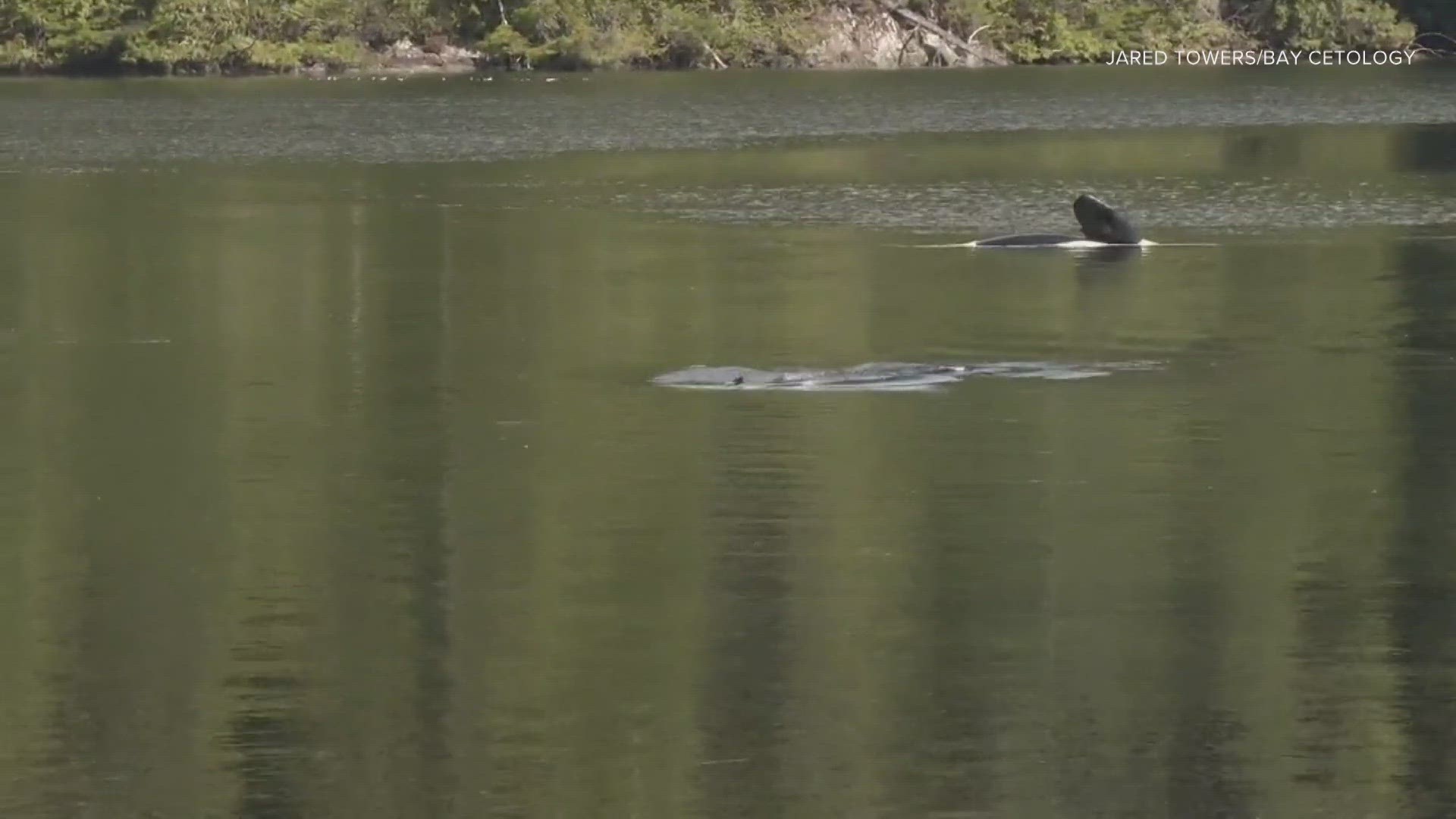VANCOUVER, BC — Canadian and First Nations officials said Thursday they are considering all possible options to rescue a stranded 2-year-old orca calf and reunite it with its extended family. That could include putting it on a sling to transport it by vessel or truck, or even the use of a helicopter if necessary.
The orca was discovered stranded in a lagoon near Vancouver Island on March 23 with its mother, who died shortly after and was found to be pregnant. It has been given the name Kʷiisaḥiʔis, which translates roughly to mean "brave little hunter." Bay Cetology has been alongside the calf, working to help ensure a safe and healthy resolution, and many community members have been watching and doing what they can to help.
Deborah Giles, science and research director for Wild Orca, has previously worked with the agencies involved and has spent her career working to understand and support whales. She said the situation itself is tragic -- but orcas do get stranded, for a variety of reasons, and she is hopeful for a safe resolution and believes the calf could thrive if reunited with extended family.
"These whales are incredibly socially bonded with their family members and they rely on each other not only for hunting and sharing food, but for just their social wellbeing," Giles said.
Experts have used a number of methods to try to coax the orca out of the lagoon into broader waters and have attempted to give it food, but it was initially not eating. Giles said it's likely when joined with extended family, the calf will refamiliarize with hunting and eating that way.
"I don't doubt she will accept [food] if she does end up in a net pen while they await the location of where her family is," Giles said. "So she's probably still OK nutritionally for another couple of days here, so I think that's as not much of a concern that she's not eating yet."
Successful stranded orca rescues have been completed in the past — including of Springer, a young whale separated from her pod in 2002. She was later reunited and went on to have calves of her own.

